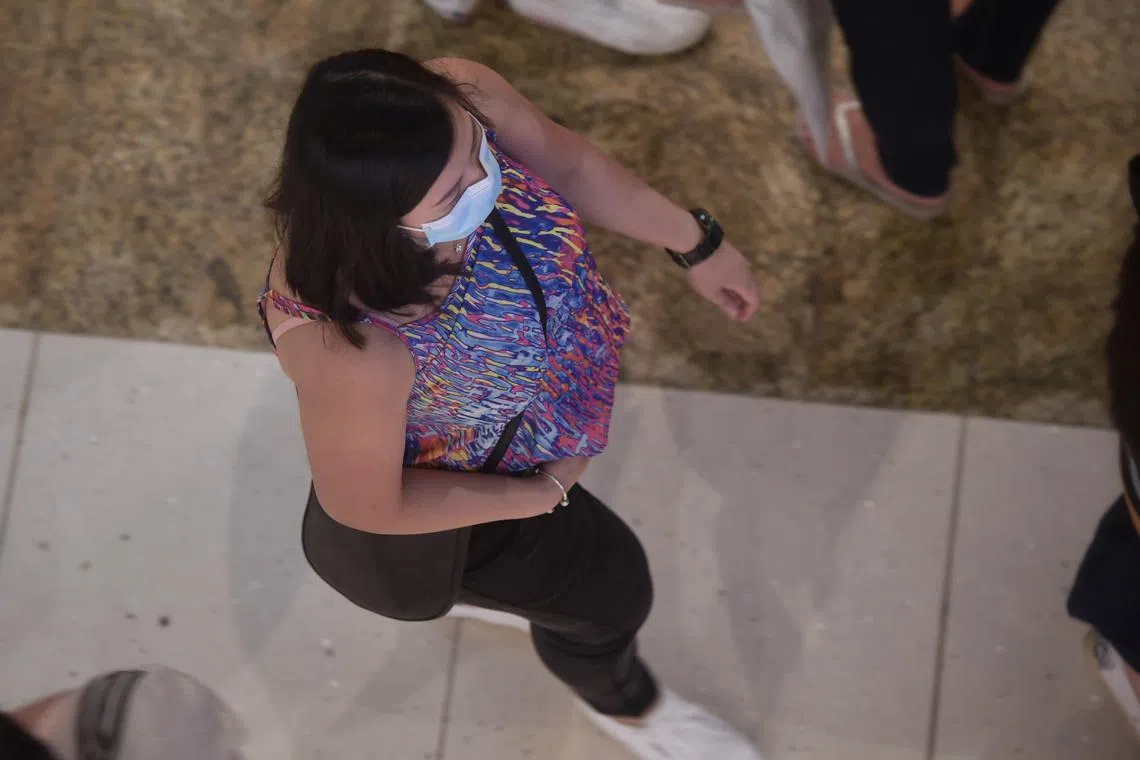Pregnant women in Singapore not likely to pass on Covid-19 to newborns: Study
Sign up now: Get ST's newsletters delivered to your inbox

The study found that only four babies – or 1.1 per cent of 371 infants – were diagnosed with Covid-19 after birth.
ST PHOTO: KUA CHEE SIONG
SINGAPORE – Pregnant women in Singapore have a low chance of passing on Covid-19 to their newborns, a study by KK Women’s and Children’s Hospital (KKH), Singapore General Hospital and the National University Hospital has found.
The study, which took place from December 2019 to February 2022, involved 371 women who had Covid-19 during pregnancy and their newborns.
It found that only four babies – or 1.1 per cent of the 371 infants – were diagnosed with Covid-19 after birth.
Of the four babies, three had mothers who were vaccinated, and one had an unvaccinated mother.
Dr Yeo Kee Thai, senior author of the study, said that the study assures expectant parents and healthcare professionals that Covid-19 transmission from mother to baby is extremely low.
The incidence of such transmission in Singapore is at a much lower rate than that cited in international reports, added Dr Yeo, who is a senior consultant at KKH’s department of neonatology.
“This is likely attributed to the higher vaccination rate among our pregnant population, which also explains the comparatively lower occurrence of moderate to severe symptoms and a lesser need for interventions in vaccinated pregnant women who were infected with Covid-19.”
In a review of 38 studies reporting the incidence of transmission of Covid-19 infection from pregnant women to babies, published in the American Journal of Obstetrics and Gynecology in July 2020, researchers estimated that 3.2 per cent of pregnant women passed the virus to their infants. This study summarised data from the beginning of the pandemic up to May 2020, and included a total of 936 infants from mothers with Covid-19.
Research participants in the Singapore study were categorised into two groups – the vaccinated and unvaccinated – as Covid-19 vaccination was made available to pregnant women only from June 2021.
Among the 353 pregnant women who provided their Covid-19 vaccination status, 278 had received one or more doses before or during their pregnancy and 75 were unvaccinated.
The vaccinated pregnant women who got Covid-19 were found to have milder disease effects.
The study found that 1.8 per cent of this group had moderate to severe disease, while 8 per cent of unvaccinated mothers had moderate to severe disease.
Those who were vaccinated were also less likely to require intensive care, with 1.4 per cent of them needing it, compared with 8 per cent of unvaccinated women who received intensive care.
The study also found that 98.3 per cent of pregnant women infected with the Omicron variant had mild symptoms. In comparison, 92.3 per cent of those who contracted the non-Omicron variants had mild symptoms.
Those who came down with the Omicron variant were also less likely to require intensive care, with just 1 per cent needing it, compared with 9 per cent of those infected with non-Omicron variants.
During the period of the study, Omicron was the key variant circulating in Singapore, followed by Delta, wild-type and Alpha.
Dr Yeo added: “As we appreciate these encouraging findings, pregnant women remain a vulnerable group susceptible to severe outcomes from Sars-CoV-2. Hence, it is crucial that our pregnant women keep up to date with their Covid-19 vaccination, to keep their families safe.”


